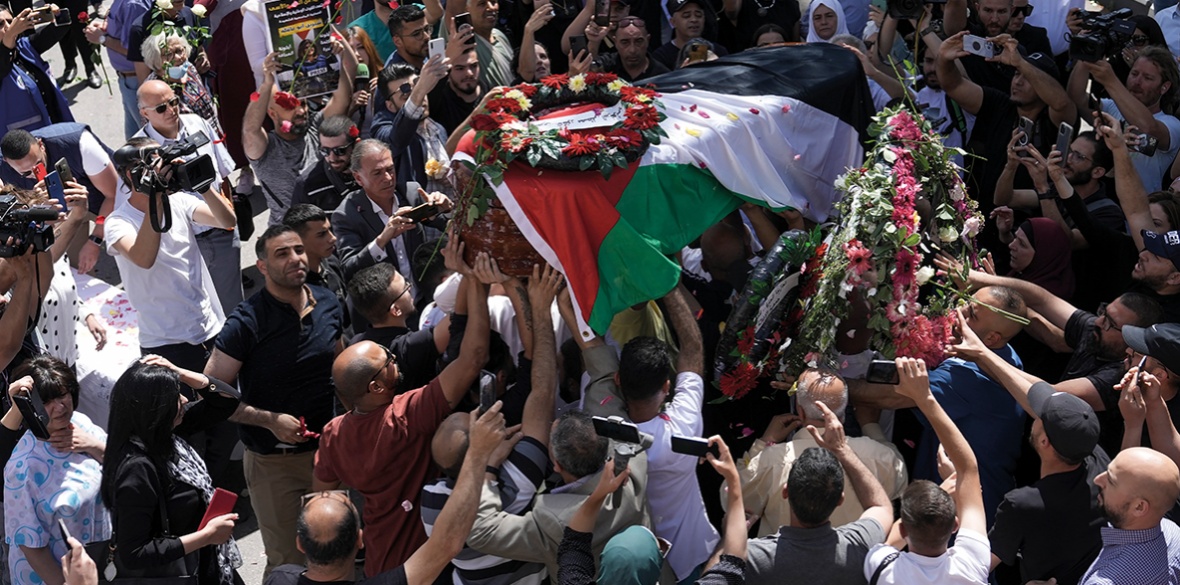This is the last article you can read this month
You can read more article this month
You can read more articles this month
Sorry your limit is up for this month
Reset on:
Please help support the Morning Star by subscribing here
OVER the past few weeks Palestinians have continued to mobilise against Israel’s intensifying repression, facing down inhumane blockades and continued deadly state violence.
Nablus and Shuafat refugee camp have been under siege, restricting the freedom of movement of tens of thousands of Palestinians, including those needing urgent medical treatment.
These events come in the context of a year in which Israel has been steadily ramping up its repression, with over 180 Palestinians killed this year, including 35 children.
Palestinians continue to resist, but we need to step up our solidarity from Britain on all fronts.
For many years, the Palestine Solidarity Campaign (PSC) has worked to build solidarity across the trade union movement. The fact that we have 14 unions and hundreds of branches and regions affiliated to the PSC enables us to ensure that the cause of justice for Palestine is taken to the heart of the labour movement.
At TUC Congress a motion condemning the plans to move the British embassy to Jerusalem was passed unanimously. We are now working hard to take our trade union allies to the next level of activism in solidarity with Palestinians.
The now widely recognised Israeli system of apartheid undermines any prospect of a viable Palestinian economy in the occupied territories and leaves millions of Palestinian workers forced into precarious, low-paid work, unemployment and underemployment.
Over 80,000 Palestinians from the occupied West Bank receive permits to get employment in Israel, where they are exploited — working for very low wages under dangerous conditions, with huge gaps in social protections and no recourse to correct any of these injustices.
Even with permits, Palestinian workers face constant harassment and spot checks by Israeli authorities. Indeed, the permits allow the Israeli authorities to constantly monitor these workers, using high-tech equipment developed by companies such as Hewlett-Packard.
Meanwhile, approximately 50,000 Palestinians have no choice but to work in the illegal Israeli settlements, sometimes located on their own family lands, in the West Bank and East Jerusalem. This includes hundreds of children and around 5,000 women.
Like those with permits, these Palestinian workers face appalling conditions. Most of them do not have employment contracts, leaving them vulnerable to poor conditions, job insecurity, and exposure to verbal and physical abuse.
Some Palestinian workers face even greater dangers — like those at the front line of Israel’s military oppression. We all heard about the killing of Palestinian journalist Shireen Abu Akleh by Israeli forces earlier this year — but this is not an isolated event, with 30 journalists being killed and dozens more injured by Israeli forces since 2000.
Health professionals are similarly targeted, with hundreds of emergency medics injured every year, particularly in the Gaza strip during Israeli bombing campaigns targeting hospitals and medical centres.
A new report, Working Palestine: Covid, labour, and trade unions in the West Bank and Gaza Strip, highlights the many ways Palestinian workers have been affected by the pandemic, while at the same time being subject to inhumane treatment in the face of Israeli apartheid and oppression.
The report notes that the construction sector “is notoriously exploitative and dangerous for Palestinian workers, with minimal regulation or oversight. According to the Israeli ministry of labour, in 2019 there were only 50 inspectors to cover 14,000 active construction sites.
A 2017 investigation by the same ministry revealed that 70 per cent of scaffolding used on Israeli construction sites does not meet required safety standards. Negligence by contractors and the Israeli government leads directly to injury and death for Palestinian workers.
In 2019, of 40 on-the-job fatalities in the Israeli construction industry, 33 were Palestinian — 19 from the occupied territories and 14 Palestinian citizens of Israel. More than half of workers injured in the construction industry on an annual basis are Palestinian, reflecting the division of labour within the sector. While Palestinians (and increasingly foreign workers) are employed in the most dangerous labour-intensive jobs, Jewish-Israeli citizens hold managerial, engineering and planning positions.
In Britain — and beyond — the trade union movement has become the largest civil society bloc standing in solidarity with the Palestinian people, with hundreds of unions and their regions and branches affiliated to the PSC. And as trade unionists, we must stand up for the collective rights of the Palestinian people in the spirit of internationalism that defines our movement.
This solidarity will be the focus of the PSC conference on November 12. The one-day event features specialist speakers Riya Al’Sanah — one of the authors of the report mentioned above, as well as Samia Al’Botmeh from Birzeit University in Palestine.
Join us to explore the various ways trade unionists in Britain can continue their solidarity work and increase their activities to fight against Israeli apartheid and for peace, justice and equality for the Palestinian people.
PSC conference: Trade Union Solidarity with Palestinian Workers, November 12, 9.45am, at Hamilton House, London WC1H 9BD — www.palestinecampaign.org.











